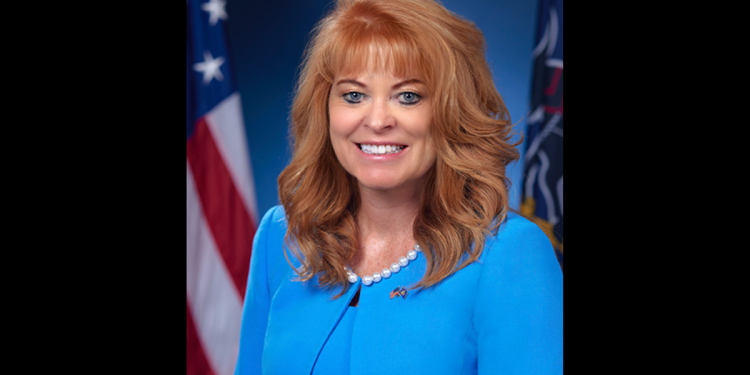Harrisburg, PA — Treasurer Stacy Garrity announced Wednesday that Pennsylvania will receive more than $20 million in unclaimed property following a settlement that concludes the landmark unclaimed property case decided in Pennsylvania’s favor by the U.S. Supreme Court in February 2023.
“This is a huge win for Pennsylvania consumers, and the right standard has been set for the future,” Treasurer Garrity said. “The U.S. Supreme Court agreed with us that these checks should be returned to the states where they were purchased, and this settlement is the first step in getting that money back into the right hands. I’m proud of the legal team here at Treasury for leading the successful effort to establish this important precedent in national unclaimed property law.”
SCOTUS unanimously ruled in favor of the Pennsylvania Treasury Department in Delaware v. Pennsylvania et al, finding that Delaware improperly received uncashed “official checks” purchased in other states as unclaimed property from MoneyGram Payment Systems, Inc., a provider of money transfer and bill payment services. Uncashed MoneyGram official checks will now be escheated to the states in which they were purchased.
The total amount collected by Pennsylvania includes $6,256,096 remitted to Treasury by MoneyGram in April 2024, covering report years 2023 and 2024, along with about $14 million approved in the settlement, covering dates back to 2011.
“This settlement concludes nearly eight years of litigation – and it’s a lawsuit that Pennsylvania should never have been compelled to initiate,” Treasurer Garrity said. “The good news is that Pennsylvanians who did business with MoneyGram will have a real chance to be reunited with their money – as will people in every state where MoneyGram sells its products. Delaware’s refusal to amicably resolve this dispute when it was first raised in 2014 will result in the payment of over $190 million to the litigant states.”
Anyone who bought a MoneyGram official check in Pennsylvania since Jan. 1, 2011, that was never cashed can reach out to the Pennsylvania Treasury Department with evidence of their purchase to file a claim. Because the records received from MoneyGram include limited information, the best evidence would be a receipt showing the amount, the location where it was purchased, and the date it was purchased. Contact information is available at patreasury.gov/unclaimed-property.
According to the Federal Disposition Act (FDA), uncashed money orders and similar instruments are to be escheated to the state in which they were originally purchased. Pennsylvania argued that MoneyGram official checks were a financial instrument to which the FDA was applicable, while Delaware argued that they should be escheated to the state where the company is incorporated. SCOTUS sided with Pennsylvania. This was the first significant decision regarding unclaimed property law decided by SCOTUS in almost 30 years.
The case was first filed by Pennsylvania in 2016, in the U.S. District Court for the Middle District of Pennsylvania. It was then moved to SCOTUS, as disputes between states fall under the Supreme Court’s jurisdiction.
In May 2021, Special Master Judge Pierre N. Leval of the 2nd Circuit Court of Appeals issued a 100-page report ruling in Pennsylvania’s favor, finding Delaware’s argument to be logically “flawed” and both “insubstantial and unpersuasive.”
In October 2022, Pennsylvania Treasury and other states presented oral arguments before the Supreme Court.
In February 2023, SCOTUS ruled unanimously in favor of Pennsylvania’s arguments.
Pennsylvania is the only state that was directly represented by its unclaimed property administrator, Treasurer Garrity. Pennsylvania Treasury was represented throughout the process by Chief Counsel Christopher B. Craig, along with Joshua J. Voss of Philadelphia-based Kleinbard LLC. Other states were represented by their respective Attorney General Offices.




